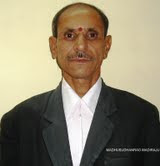When the Expert opinion testimony offered through the medium of a qualified witness, may be given concerning any subject relevant to the matters in issue, in which a person may become specially learned or skilled or acquire special proficiency , subject, to the qualification that an experts opinion cannot be received if it amounts to a conclusion of law. Expert witnesses may explain to the court and jury the machines, models; drawings exhibited and may point out their differences or the identity of the mechanical devices involved in their construction, and under they may be examined on and explain questions of art, mechanics, or science peculiar to their trade or profession.
Experts are entitled to give in evidence their opinion as to conclusions from the facts within the range of their specialties. The testimony of expert as to general scientific facts in issue. Such opinion testimony is admissible not only when scientific knowledge is required, but when experience and observation in a special calling give the expert knowledge of a subject beyond that of person of common intelligence and ordinary experience.
A witness possessing special skill or knowledge of the subject may state an opinion, where the facts are such that inexperienced persons are likely to prove incapable of forming a correct Judgment without the assistance of such opinion. The scope of such evidence extends to any subject in respect of which one may derive special knowledge by experience, when his knowledge of the matter in relation to which his opinion is asked in such, or so great that it will probably aid the Trier in the search for truth.
It will be safer to confine the testimony of witness to facts when ever its practical to do so and leave the jury to exercise their Judgment and experience on the proved fact. The rules admitting opinions of experts evidence are not to be necessarily extended but speaking generally expert testimony is admissible upon a matter regarding which there is not common knowledge, where the court or jury may be aided or educated by the expert views and opinions of men experienced in some particular art, trade, or business and profession, such testimony is not, on the other hand admissible on matters of common knowledge even though offered through the medium of witness having knowledge having superior knowledge.
The opinion of persons well versed in foreign law, or science, art, and for proving the identity of finger prints or hand writing is made relevant under the provisions of Indian Evidence Act. Such qualified persons are experts and are competent to depose as to their opinion on the disputed facts and questions. The reason behind the principle of admitting the facts in support of the opinion or contradicting the opinion tendered by an expert is that the opinion given by an expert to be reliable must be tested by Cross-examination.
When the court has to form an opinion of foreign law of science, art, or as to identity of handwriting or finger prints, the opinions upon that point of persons especially skilled in such subject are relevant factors. Such persons are called experts.
Tuesday, February 22, 2011
Subscribe to:
Post Comments (Atom)


No comments:
Post a Comment